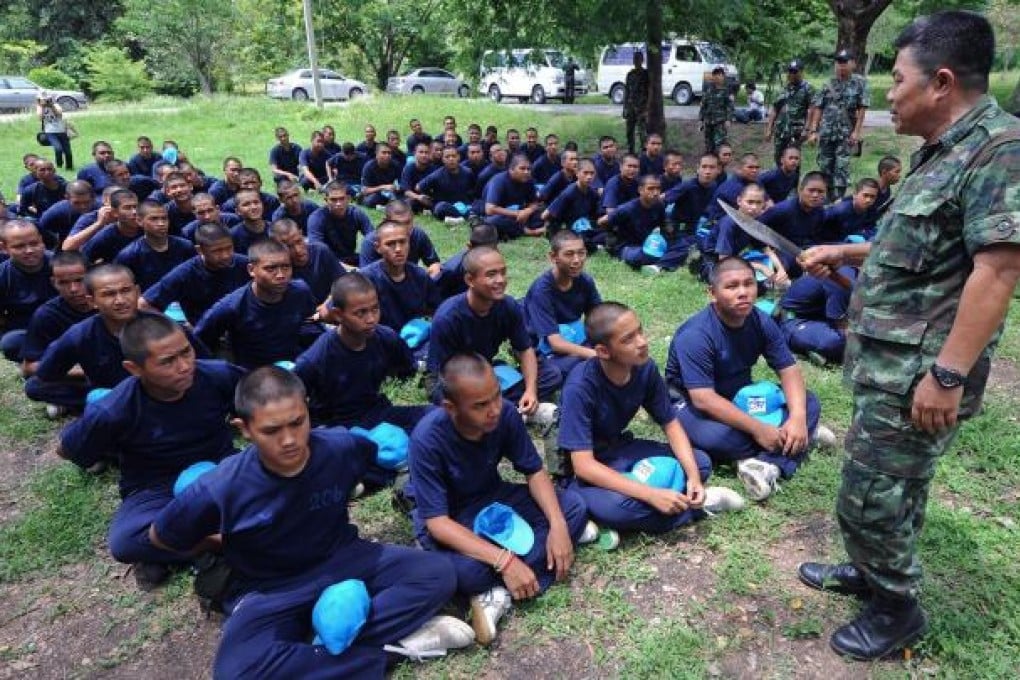Thai boot camp tries to end enmity of vocational-school gangs
With murder common during the new school year as vocational college factions fight each other, officials try to rehabilitate the hard cases

Sweat dripping from their foreheads as they complete a set of press-ups, students at a Thai army boot camp are momentary allies, but a spate of gang shootings suggests it is an uneasy peace.
Deadly rivalries between student gangs have seen several teenagers gunned down in Bangkok since the start of the school year in May, leaving the kingdom's authorities scrambling for answers to a decades-old violent tradition.
The 150 students doing fitness drills at the army camp north of the capital come from vocational colleges - schools notorious for incubating ruthless gangs who fight for the perceived pride of their institution.
"I stabbed a student in the head," says Pond, a pimply 18-year-old who escaped prosecution for the assault but was fined a few dollars for carrying a knife.
"Sometimes I feel bad about it, but it's what happens. We do it because it's a legend, passed down from the seniors in our school. We do it for pride."
The colleges prepare teenagers for a life of manual work, rather than going on to university, and the students are often viewed as low status by a society with a keen sense of hierarchy.